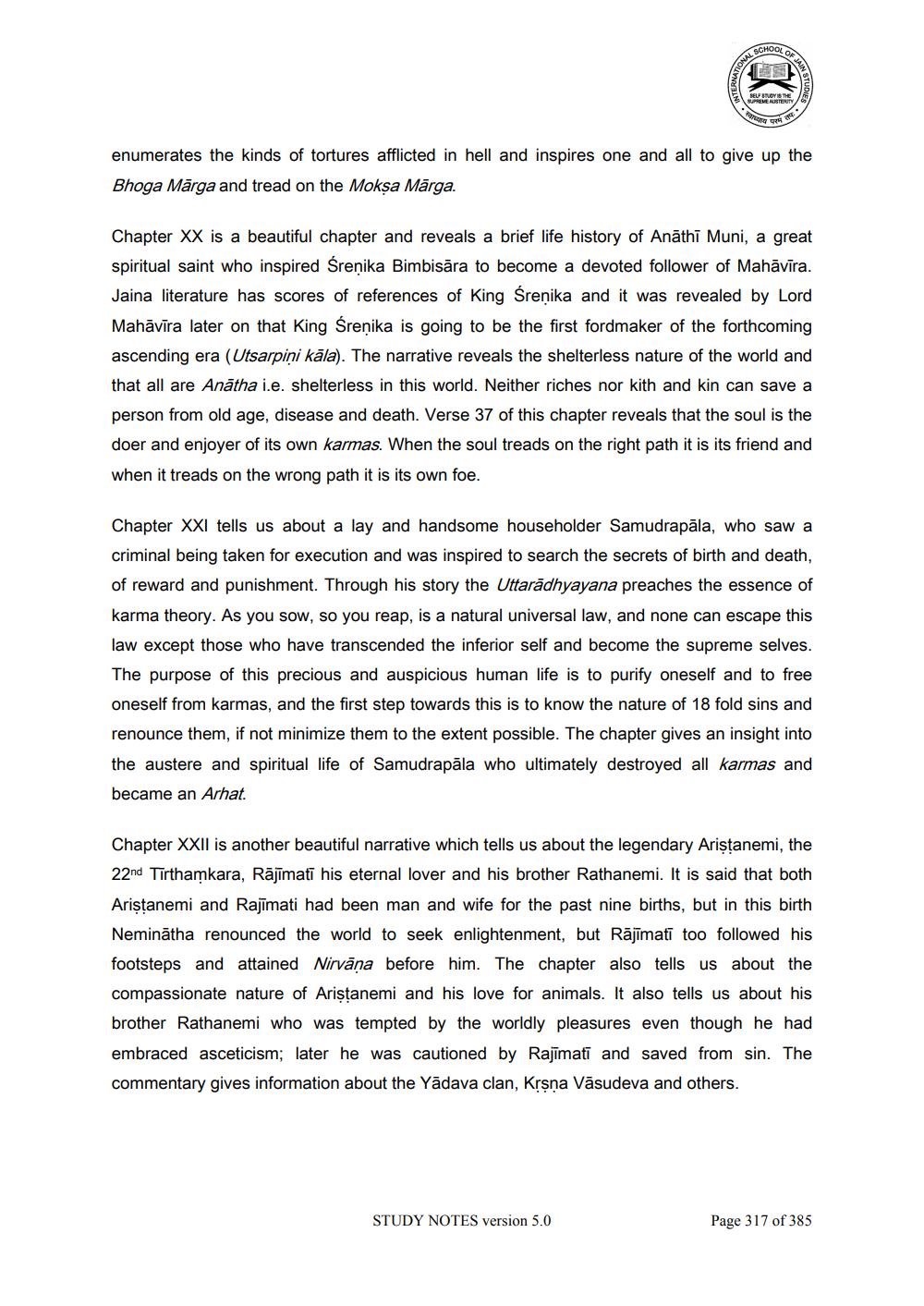________________
SELF BUDYIS THE
enumerates the kinds of tortures afflicted in hell and inspires one and all to give up the Bhoga Mārga and tread on the Moksa Mārga.
Chapter XX is a beautiful chapter and reveals a brief life history of Anāthī Muni, a great spiritual saint who inspired Śreņika Bimbisāra to become a devoted follower of Mahāvīra. Jaina literature has scores of references of King Śrenika and it was revealed by Lord Mahāvīra later on that King Śrenika is going to be the first fordmaker of the forthcoming ascending era (Utsarpiņi kāla). The narrative reveals the shelterless nature of the world and that all are Anātha i.e. shelterless in this world. Neither riches nor kith and kin can save a person from old age, disease and death. Verse 37 of this chapter reveals that the soul is the doer and enjoyer of its own karmas. When the soul treads on the right path it is its friend and when it treads on the wrong path it is its own foe.
Chapter XXI tells us about a lay and handsome householder Samudrapāla, who saw a criminal being taken for execution and was inspired to search the secrets of birth and death, of reward and punishment. Through his story the Uttarādhyayana preaches the essence of karma theory. As you sow, so you reap, is a natural universal law, and none can escape this law except those who have transcended the inferior self and become the supreme selves. The purpose of this precious and auspicious human life is to purify oneself and to free oneself from karmas, and the first step towards this is to know the nature of 18 fold sins and renounce them, if not minimize them to the extent possible. The chapter gives an insight into the austere and spiritual life of Samudrapāla who ultimately destroyed all karmas and became an Arhat.
Chapter XXII is another beautiful narrative which tells us about the legendary Aristanemi, the 22nd Tirthamkara, Rājimati his eternal lover and his brother Rathanemi. It is said that both Aristanemi and Rajīmati had been man and wife for the past nine births, but in this birth Neminātha renounced the world to seek enlightenment, but Rājīmati too followed his footsteps and attained Nirvana before him. The chapter also tells us about the compassionate nature of Aristanemi and his love for animals. It also tells us about his brother Rathanemi who was tempted by the worldly pleasures even though he had embraced asceticism; later he was cautioned by Rajīmati and saved from sin. The commentary gives information about the Yādava clan, Krsna Vāsudeva and others.
STUDY NOTES version 5.0
Page 317 of 385




